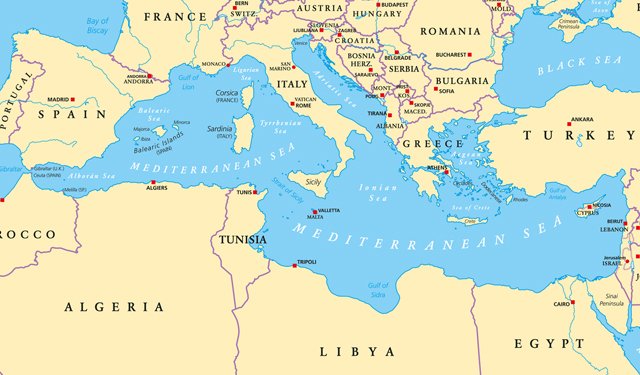The Mediterranean is getting warmer and saltier – The Mediterranean is undergoing significant changes in temperature and salinity at all levels, from the surface to the deepest layers. This result emerges from a study conducted by researchers from the oceanographic centres of Malaga, Illes Balears and the central services of the Spanish Institute of Oceanography (IEO, CSIC) in collaboration with the Institute of Marine Sciences (ICM-CSIC) and the Coastal Observation System of the Balearic Islands (SOCIB).
The results of this research, published in the Journal of Marine Science and Engineering, show an increase in temperature and salinity throughout the Mediterranean Sea. In particular, a rapid increase in surface water temperature is observed, ranging from 2ºC/sec in the Alboran Sea to almost 3ºC/sec along the Catalan Estartit coast.
The study also revealed an acceleration in the rate at which Mediterranean waters absorb heat, similar to that in other parts of the planet. In addition, an increase in the intensity and frequency of marine heatwaves over the last 30 years was highlighted.
These results are the fruit of an ambitious project initiated by the Mediterranean Group on Climate Change (GMCC-IEO) to review and analyse information gathered over three decades of monitoring the Mediterranean.
The RADMED programme, managed by the IEO, has played a key role in the collection of historical data to assess the impact of climate change on Mediterranean marine ecosystems. The project was funded by the European Union through the European Fund for Fisheries and Maritime Aquaculture (FEMPA), under the National Programme for the Collection, Management and Use of Fisheries Data, as well as by other research programmes.
This study provides a valuable knowledge base for assessing the health of the Mediterranean and the effects of climate change on its ecosystems, paving the way for future research and measures to protect the marine environment.
The increasingly hot and salty Mediterranean









